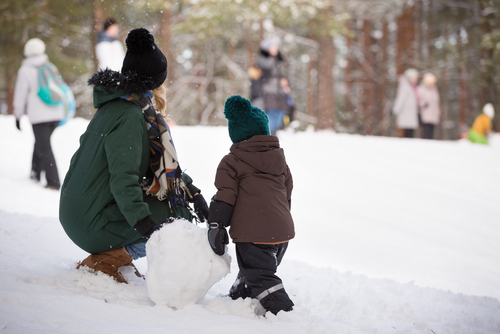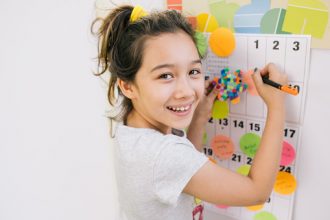Though winter is a busy and exciting time, visiting relatives and enjoying the holidays, parents shouldn’t forget about the potential for learning loss. Learning loss is the phenomenon where children forget important academic skills over breaks and holidays.
NCLR Education has assembled a kit of activities and learning designed for families to prevent children from experiencing any loss of academic skills. This kit contains activities which parents can do with their children in order to promote learning and develop critical thinking skills through everyday activities.
While we’re at the library!
Reading: is one of the most important activities a child can do. Reading in any language has transferable skills such as reading comprehension, and Whether at home or the library, parents and students should spend at least 30 minutes a day reading together or alone.
Creative Writing: Keeping a journal entry, even if it’s just a few sentences, of what they just read allows students to be able to comprehend, understand and communicate to others what they just read—all invaluable skills. As an incentive, after finishing a book or novel, parents and students can watch the movie version of the book together!
When we’re at grandma’s house
Critical Thinking Skills: There are a multitude of everyday activities students can do at home with their parents or grandparents, which help develop different critical thinking skills as well as applicable life skills. Have your child create ornaments and holiday decorations to encourage their artistic creativity, or allow them help with any crafting or sewing, to foster good motor skills.
Baking with abuelita!
Cooking and baking are easy, everyday activities children can help their grandma or parents do around the house. Children can develop math skills such as fractions and addition, as well as general cooking skills while helping abuelita or mom cook a meal or bake their favorite cookies.
Chores are so much fun!
For toddlers, the opportunity to be a good helper around the house is motivation enough to learn! One of my most vivid childhood memories is laundry day. On laundry day I got to sort into colors, count the number of garments, measure the soap needed and once the clothes were dried I loved to match the socks by color and size.
Helping family…at a good price!
Children are attracted to the colorful coupons page in the Sunday newspaper. You can have your children finding coupons and applying them during grocery shopping is both economical and a mini math lesson for children who can do basic math. Attempting to guess how much the total will be is also challenging, but fun.
Parental engagement is proportional in how it affects a student’s academic engagement and interests. These activities, though perhaps not the most educational, serve as mini lessons to strengthen and complement what students learn in school—not a substitute for what they learn.
What is truly important, however, is the bonding time and memory making these activities offer families and children during the holiday season.
Cesar Estrada is currently a senior at the University of Notre Dame studying Political Science and Theology and former intern for the Education department at the National Council of La Raza (NCLR).





